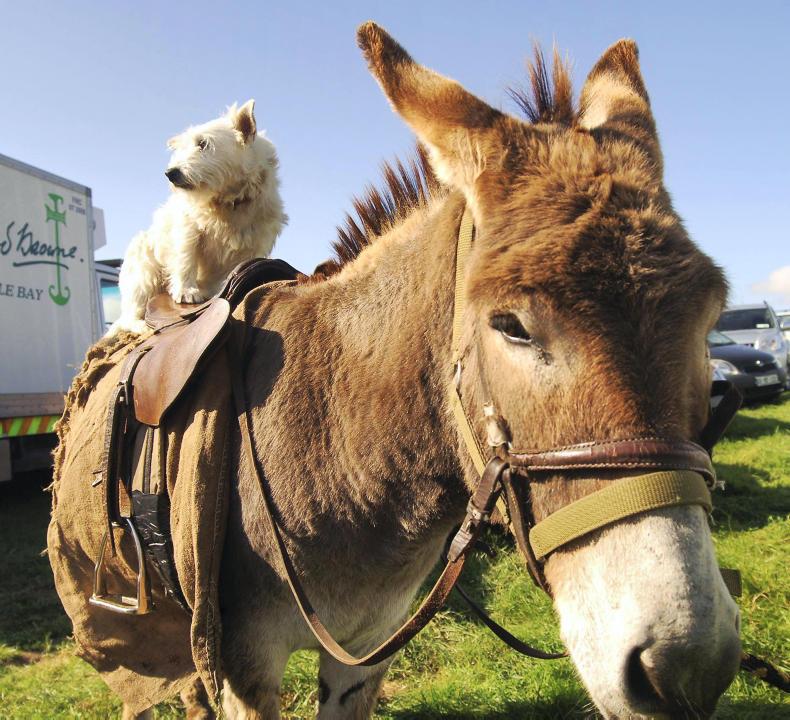There is no more endearing farm animal than donkeys.
A photographer’s delight, they have featured in some of the most iconic images of Ireland. But they have a problem!
Donkeys do not really belong on the soft soil of our fertile land at all.

They evolved on the hard stony surfaces of the Middle East and Africa where nature took care of paring down their unique feet.
Unlike the horse, a donkey’s hoof grows out like our toenails and without constant farriery it curls up in front and folds in at the sides so that, in a very short time, the donkey is hobbled and in constant pain.
Keeping a donkey
Having run a donkey farm for over 10 years, I learned about the basic needs of this wonderful animal and I would summarise them as follows:
1. First of all donkeys should be kept in twos – they just love a pal.
2. They need at least an acre and a half of land, that is well fenced and divided into two so that one part can be rested while the other is grazed.
3. A shelter is essential to protect them from both the weather and the flies that can cause terrible sores under their eyes.
4. They should get a worm dose at least once a year.
5. Colt foals should be gelded as quickly as possible and only the exceptional one kept for breeding.

6. Above all else they need to have their hooves trimmed back at least three times a year.
My plea
Nobody should acquire or breed a donkey unless they can fulfil those six basic needs. Otherwise they will cause unnecessary pain and misery.
Back in the 1970s the then Irish Donkey Society set up a scheme to help get farriery help to anyone needing it.
This kind of help is now provided by the Irish Donkey Sanctuary at Liscarrol, Co Cork.
Whenever we see a donkey with terribly overgrown hooves we need no more proof that it is a neglected animal and we should do one of two things:
1. Have a friendly chat with the owner, if he or she can be found, and offer help in getting a farrier.
2. Get in touch with the Irish Donkey Sanctuary at 022 48398.
The Irish Donkey Sanctuary is a charity which has given help to thousands of donkeys down the years.
They operate a great re-homing and adoption programme whereby pairs of donkeys are given homes with people who can care for them.
This brief article does not even touch the surface of what needs to be done for these animals. Rather it is a plea for us never to ignore the plight of a neglected donkey.
MICHAEL SLAVIN: The courage to lead
Michael Slavin: Stallion entries hold steady for upcoming inspections